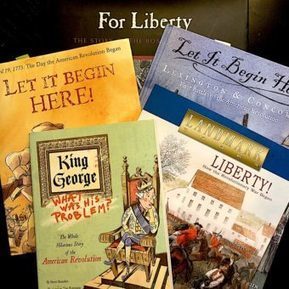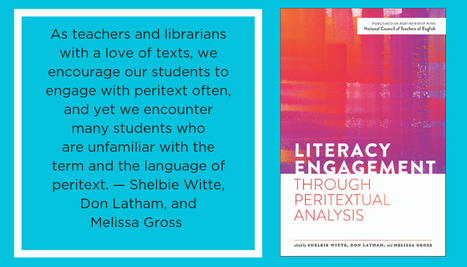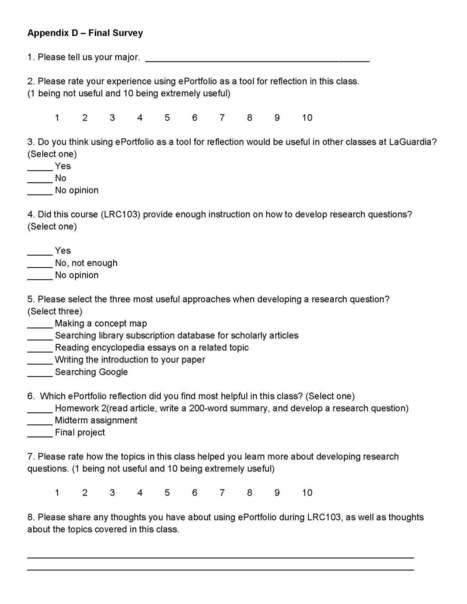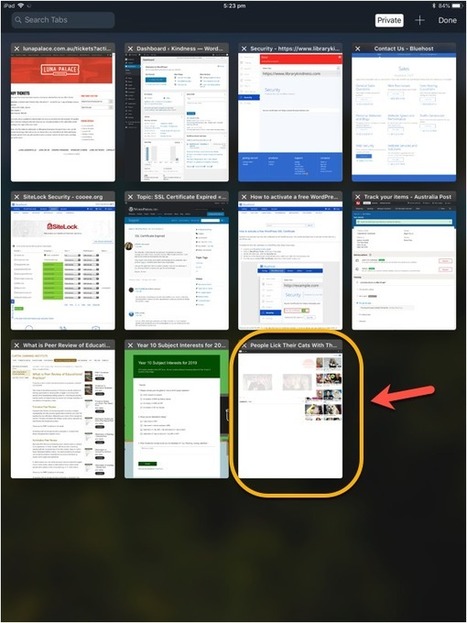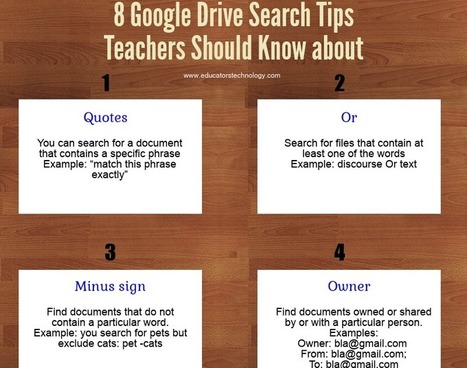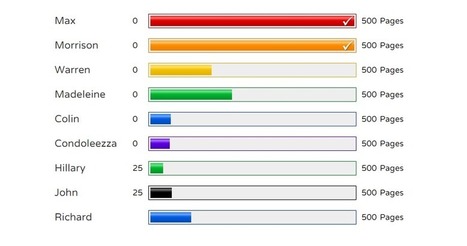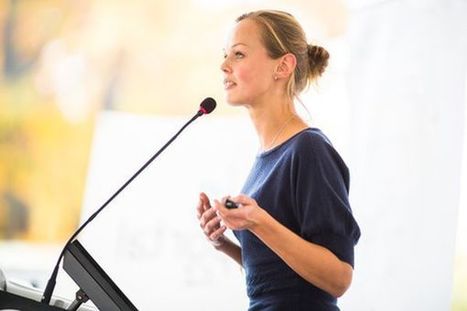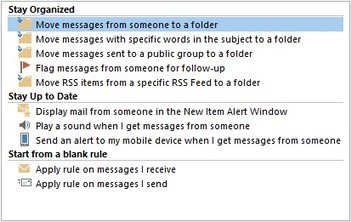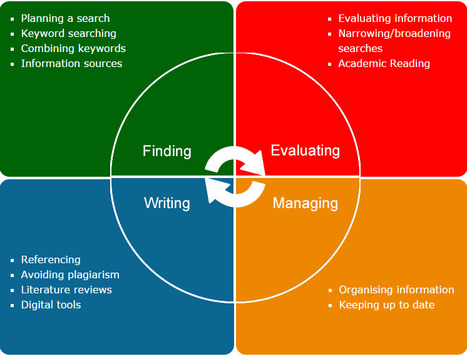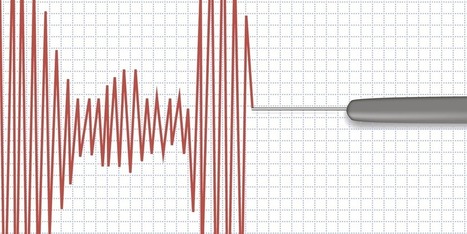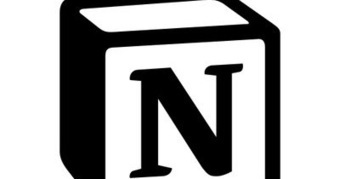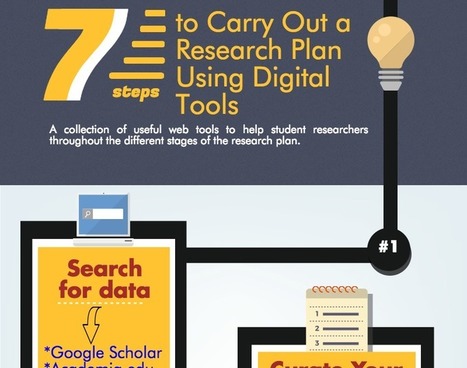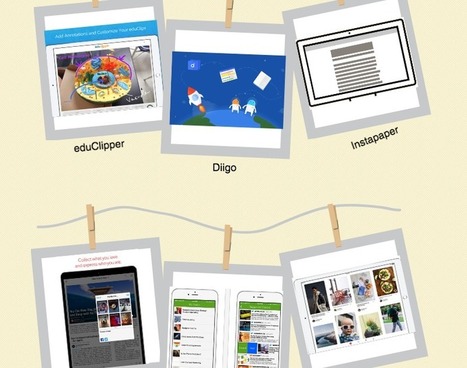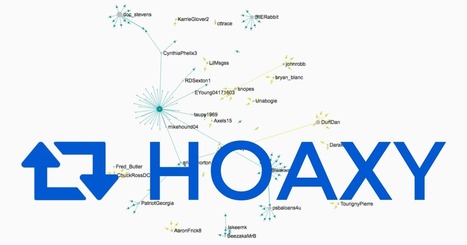 Your new post is loading...
 Your new post is loading...
When your students read, view, and listen to multiple sources on a topic or issue, do they tackle each source in a silo? Learning a little bit about this and a little bit about that but not really synthesizing the information from multiple sources?
This post was written by Shelbie Witte, Don Latham, and Melissa Gross, editors of Literacy Engagement through Peritextual Analysis (ALA & NCTE, 2019). As teachers and librarians with a love of texts, we encourage our students to engage with peritext often, and yet we encounter many students who are unfamiliar with the term and the language of peritext. Common peritextual elements such as the text cover, table of contents, and source notes provide opportunities for readers to increase their comprehension of and to think critically about a text. Many times, readers will skip the reading and viewing of peritext and begin with the text proper. By doing so, they are often missing critical information an author has included about the text and haven’t taken advantage of all the layers of meaning surrounding the text.
Scientific research has changed, now being largely conducted in collaborative teams. However, undergraduate student training has not necessarily kept pace with these changes. In order to work effectively in collaborative settings, students need to develop not only the technical skills related to their discipline, but also communication and interpersonal skills needed to work in teams. Nora J. Casson reports on research which proposes a model for explicitly teaching collaborative skills, while engaging students in meaningful scientific research. Skills such as managing data from multiple collaborators or giving and receiving feedback via file-sharing platforms should be taught as explicitly as traditional skills such as how to use a pipette or how to formulate a hypothesis.
The following case study investigated the efficacy of Information Literacy (IL) pedagogy on undergraduate research in a credit-bearing library instruction class. More specifically, the study analyzed student success and sought to determine whether written reflection and practice strengthen IL skills, including the fundamental ability to develop a research question and thesis statement. Developing research questions and formulating thesis statements are among the most challenging duties of a young researcher. From high school through undergraduate, students often have minimal experience conducting research. They may not know where to begin the research process and what steps are necessary. Student frustration is exacerbated by the fact that typically IL instruction is one-shot guidance, given only once in a semester, making it difficult for a librarian to cover all that is needed. Can a semester long, credit-bearing course aid student success in research and improve IL skills? The instructors introduced several techniques to improve IL skills, and instructors evaluated three class assignments based on their college’s core competencies. Additionally, instructors collected and analyzed students’ written reflections of their progress and an end of semester survey as both qualitative and quantitative data.
This was me. Does it sound like you ?
Too many tabs open in my browser …I think 64 was my record. In just one window. I am also a great “that is too messy, so I will open a nice, clean window” (but not close the other open ones) kind of woman.
But….I can’t close the open tabs because some must be useful, this is DAYS worth of tab-opening right here.
Can’t find what I want, so…I’ll just open that tab again, rather than locate the right tab.
My laptop is slowing down because displaying the fiddly bits on the open pages is hogging memory.
I know I will use these nine web pages each workday, and am sick of opening them each morning.
Oh damn!! I didn’t mean to close that tab, and now I can’t remember how exactly I got to it
Do you want to create a game to help students learn a new concept? Are you looking for free pictures and videos for students to use in digital presentations? You’re in luck: Websites for educational game creation, copyright-free images and videos, and video-based quizzes are among the American Association of School Librarians’ (AASL) top websites for teaching and learning.
In yesterday’s post, we featured a number of important tips to help teachers and students become better Google searchers. In today’s post we are highlighting another equally important set of search tips but this time to use on Google Drive. The purpose is to help you easily, search for, locate, and access files and documents you have saved on your Google Drive.
This morning I received an email from a subscriber to the Practical Ed Tech newsletter. She had read my tip of the week about using Google Keep to set goal reminders, but she needed something that would be easier to manage with a large group of students. My suggestion was to try Flippity's Progress Indicator template for Google Sheets.
When you’re tasked with a business presentation, there’s more on the line than making yourself understood. Your goals are bigger: winning new business, shifting the direction of your business, or adopting new tactics, to name just a few.
To achieve the results you’re after, you must move your audience to take action. Doing that requires a different skill set than simply conveying information. How can you step up your presentation game accordingly?
It would probably come as a surprise to most researchers, working with assumption that citation counts as the one true measure of research excellence, that there is no accepted theory of what it is we are doing when we reference a work.
Stay organized in the Outlook desktop program by creating rules that automatically act on an arriving or sent message that meets the conditions you specify.
Have you ever noticed that when you present people with facts that are contrary to their deepest held beliefs they always change their minds? Me neither. In fact, people seem to double down on their beliefs in the teeth of overwhelming evidence against them. The reason is related to the worldview perceived to be under threat by the conflicting data.
The topics in the wheel below are all crucial elements of any successful essay or report. You'll develop these over your time here at Newcastle, and in the process, develop your Information Literacy – a crucial work skillset. You can pick out topics as you need them or work through the wheel. Remember to log details in your ePortfolio. If you’re working on a longer project or dissertation, why not take a look at the Dissertation station for more advice and help.
|
Students at our public, urban community college were experiencing difficulties finding correct, consistent answers to their questions about navigating college processes, information students needed to succeed in school. These difficulties were fueled not only by our students’ backgrounds—they are often the first generation in their family to attend college, may require additional academic preparation, or lack support for their higher education dreams—but also by the siloed information environment prevalent in academia. When our college president realized the extent of student challenges in this area, she looked to the college’s librarians, campus experts in knowledge organization and provision, for direction with a knowledge management initiative to support our students.
Knowledge management can be broadly thought of as the ways institutional knowledge is gathered, organized, and made available in coordinated ways that are useful to the organization. Along with Student Affairs, the Library co-led the development of a collegewide knowledge base, the goal of which was to provide students and other users, including college faculty and staff, with the correct answer to common questions. The Library hired a part-time metadata librarian originally just for this project, but that librarian was later appointed full-time faculty while continuing to manage daily operation of the knowledge base.
Now in its fifth year, the collaborative Ask LaGuardia knowledge base has become an institution at the college. Usage has grown. Librarians involved in knowledge
In the past year, many educational institutions began to address the challenge of digital misinformation. As head of a multi-institutional projectthat addresses these issues, I found this heartening. Less encouraging, however, was the persistence of many myths about how misinformation works, what its risks are and how we might address it. In the hope we might have a more productive 2019, I thought I’d outline some of those myths and realities below.
The sheer number of online services and social media platforms available to academics makes it possible to receive a constant stream of information about newly published research. However, much of this may serve only as a distraction from your research and staying on top of it all can even come to feel like a burden. Anne-Wil Harzing offers some simple advice to help you streamline your alerts and notifications and keep up to date with the important new publications in your field. Getting the most out of your Google Scholar profile, creating some old-fashioned table of contents alerts, and simply setting aside time to periodically review key journal titles will ensure you rarely miss out on important research.
It asked the SRS community about what they thought were the most important search skills. (Take it by clicking here, if you want to see what the original survey was all about.)
Since I do surveys professionally (for my research work at Google), I know this isn't a perfect survey. The sample size is too small, too biased towards professional researchers, and doesn't have a broad enough set of questions to be accurate.
Notion is an interesting service that combines elements of project management with elements of a wiki service. At its core Notion is designed for teams to work on projects together. You can create sections for each of your projects. Within each section you can create a list of tasks. Notion also lets you add sections that include links, videos, images, and documents that you have written outside of the service.
Choosing & Using Sources: A Guide to Academic Research is an open book by Ohio State University Libraries. It is aimed at students and has chapters on questions, types of sources, precision searching, ethical use of information etc. etc.
A recent study by North Carolina State University researchers finds that teaching critical thinking skills in a humanities course significantly reduces student beliefs in "pseudoscience" that is unsupported by facts.
"Given the national discussion of 'fake news,' it's clear that critical thinking - and classes that teach critical thinking - are more important than ever," says Anne McLaughlin, an associate professor of psychology at NC State and co-author of a paper describing the work.
This naturally led to a conversation about portfolios. Portfolio discussions typically center on the tools: how to save, share, and publish student work. When we instead let the process of curating, reflecting, and sharing serve as the focal point, portfolios become summative in nature and can be viewed as an add-on to the end of a unit, project, or activity.
For portfolios to be truly valuable to both students and teachers, they need to provide insight into not only what students created as a representation of their learning, but also how and why they created it. If the ultimate goal is to develop students as learners, they need an opportunity to make connections to the content as well as the overarching learning objectives.
Here is another of our popular posts of 2017. This is a poster outlining the the different steps involved in doing digitally based research. ‘The poster features the 7 phases that comprise the research process and for each phase we came up with suggestions of web tools student researchers can use to accomplish it.
Bookmarking tools are key to the effective management of digital resources. They allow you to capture and save important information to read later. Most of these tools provide organizational features enabling users to organize their bookmarked content into boards and collections that can be shared with others. Other tools even go a step further to provide collaborative features that allow a group of people to collectively bookmark and share online resources. Based on our long experience with reviewing educational web tools, we went ahead and curated for you what we believe are some of the best bookmarking tools for teachers. These are tools you can use to bookmark, annotate and share resources you come across online. We invite you to check them out and share with us your feedback in our Facebook page. Links are provided under the visual.
Oh, email. Whether you’re managing a few people, a large team, or just yourself, it can both help and hinder your success. Because, as I’m sure you’ve noticed, the more people you collaborate with, the more messages build up, and the more challenging it is to get through them in the five minutes you have between back-to-back meetings.
From the website: "Hoaxy visualizes the spread of claims and related fact checking online. A claim may be a fake news article, hoax, rumor, conspiracy theory, satire, or even an accurate report. Anyone can use Hoaxy to explore how claims spread across social media."
Via Mary Reilley Clark
|

 Your new post is loading...
Your new post is loading...
 Your new post is loading...
Your new post is loading...





